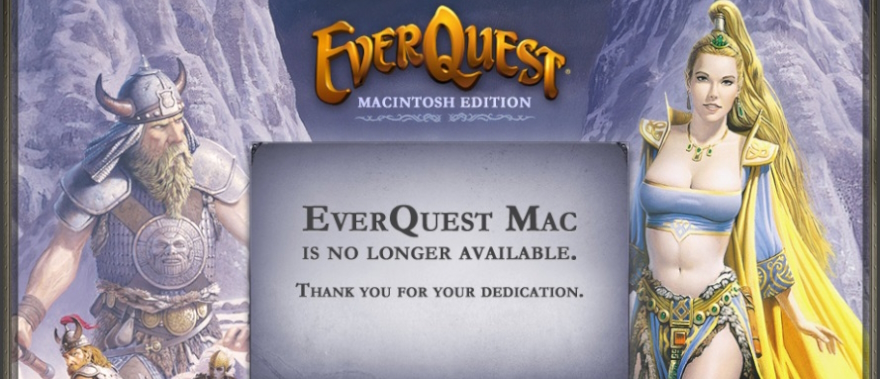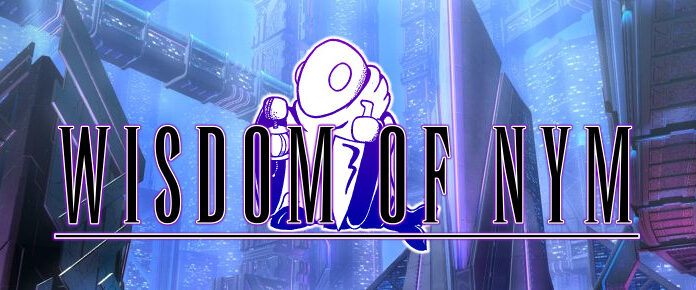
In 2003, Sony Online Entertainment tried an experiment to reach out to the (then) small-but-growing community of Mac users. The company released EverQuest Macintosh Edition — quickly abbreviated to EQMac — which incorporated the core game and the first four expansions of EverQuest: The Ruins of Kunark, The Scars of Velious, The Shadows of Luclin, and The Planes of Power.
Because EQMac was a separate version of the game, SOE segregated Apple players on their own server called Al’Kabor and then, for all intents and purposes, abandoned them as the “real” EverQuest continued to expand and advance.
While the population didn’t exactly explode, especially as the progression of time rendered EQMac stuck in a type of video game amber, a singular community of dedicated, helpful players formed which became proud of their hardcore home. According to many of them, EQMac was the way EverQuest was always meant to be played, frozen in time at the height of the game’s best expansions. It became a mark of pride to say that you played on Al’Kabor.
After the first few years, the allure of EQMac became less about its native OSX platform and more about its “stuck in time” status. Like all MMOs, EverQuest continued to expand and change as the years rolled on, and some gamers regretted the transition to what they saw as a kinder, softer EQ that lacked the difficulty curve and raid challenge of the early 2000s. Fortunately for those who felt that way, EQMac gave them an opportunity to return to the past and play the game as it was — not as it became.
For a player weaned on World of Warcraft, Lord of the Rings Online, or even EverQuest II, 2002’s Planes of Power might well be a completely different universe of gameplay instead of a game from just a few years before the rest released. EQMac was established in an era when leveling took an extremely long time — and there was no guarantee you’d ever hit the level cap, what with the harsh death penalties and all. The UI was more cumbersome, it was in first-person perspective, your compass simply wouldn’t work unless you leveled up Sense Heading (plus, no maps!), night was pitch-black except to certain races, and grouping was an absolute must.
And this, ladies and gentlemen, is the environment that a segment of MMO players craved. Instead of holding your hand, EQMac’s hands pushed you down in the mud over and over again. Not everything was available in a giant database the minute the game went live. Players had to band together to figure out even the simplest of things, and real progression took time, dedication, and a monumental level of teamwork. For hardcore raiders, it was paradise.
It’s not exactly true that SOE outright abandoned Al’Kabor. While the community was incredibly small (rumor put the population in the hundreds rather than thousands) and the studio stated that it wasn’t proud of this version of the client (and thus did not elect to keep the game in sync with EverQuest classic), it did receive a modicrum of support from within the company.
One developer in particular, Todd “Hobart” Schmidt, became the expert on EQMac and began to hack away at the bugs and problems that plagued the server since the game’s inception. Severe issues, such as the in-game sound causing bugs and crashes, had previously gone ignored by SOE, but Hobart turned that around.
While there’s only so much one man could do, EQMac players recognized that Hobart’s interest in the game went above and beyond mere maintainance. The server also benefited from a part-time GM and a volunteer guide program
The other major boon to the server came in August 2005, when SOE released EQMac as a free client download with a 30-day trial for new players. Previously, players had to hunt down one of the increasingly scarce copies of the retail box.
While EQMac had official forums on SOE’s website, the community quickly gravitated toward its own fansite, EQMac.com (which exists now an emulator). It’s here that players organized their in-game activities and kept the spirit alive for the better part of a decade.
Buried among the hoopla of EverQuest’s 2012 F2P conversion was the sad news that Al-Kabor would not be joining the rest — or even continuing to operate as is. The studio posted the sad announcement on January 10th of that year, sending shockwaves through this tiny community.
While EQMac players were told that the months of February and March will be subscription-free for currently players, it certainly wasn’t much of a consolation prize for those who had made Al’Kabor their own. The servers lit up with a mixture of outrage and sadness, with folks torn between fighting for the game and discussing how to best spend the last couple of months.
Others echoed the seniments of player Aerili, who wrote, “I’m sure SOE are expecting the howls of outrage, disappointment and more. And deservedly so. This is a pathetic decision, especially given the excellent work by Hobart on improving the server and the creation of the Intel client. As a gaming community, Al’Kabor has been a real success, in spite of SOE.” Another player asked in bewilderment, “You’ll keep seven EQOA servers running, but not one Mac server?”
Perhaps one of the most touching stories comes from Kristin, who met her husband on the server in 2005: “We have a wonderful relationship and two kids all thanks to this wonderful sanctuary that Sony has nurtured quietly in a corner for nearly a decade. I cannot express to you enough how badly our community doesn’t want to be torn apart. There has been talk that the whole community may move to another game to continue playing together, but we all soon realized there is no other game like EverQuest and nothing close to being as awesome as Planes of Power. There isn’t anywhere to go that recreates what we want to play, how we want to play, and the challenge imposed by Al’Kabor’s unique rules. All of us here at EQMac firmly believe that what we have is incredibly special and we don’t want to lose it. We would prefer to be ignored for another 10 years if possible, but I know you may have other plans for us.”
Astonishingly, John Smedley wrote a follow-up letter to the distressed community, laying out the reasons behind the decision, saying, “You should also know I’m personally a Mac (and Apple) fanatic, so it breaks my heart to have to do this.” In it, he said that the small population and ancient codebase that only one dev knew presented difficulties in justifying continued operation.
Looking for a compromise of sorts, Smedley did commit to running a poll about a possible Mac version of the current EverQuest client. If numbers were high enough, he said, he could go to the company with a case for doing it. And while a vast majority of pollsters did vote for the Mac port, to date there are scarcely 600 people who have voted — numbers too low to justify action.
The server got a stay of execution at the last minute, as SOE agreed to keep it running. This kept EQMac’s lights on until late the next year, when the studio announced that it was finally pulling the plug on November 18th, 2013.
“After much review and consideration, we have made the decision to sunset EverQuest Mac,” SOE Said. “EQMac was originally scheduled to sunset in early 2012, but we kept the game up and running following the passionate feedback received from the community. As we align development resources towards our upcoming slate of games, we cannot justify the resources required to continue to support EQMac.”
 Believe it or not, MMOs did exist prior to World of Warcraft! Every two weeks, The Game Archaeologist looks back at classic online games and their history to learn a thing or two about where the industry came from… and where it might be heading.
Believe it or not, MMOs did exist prior to World of Warcraft! Every two weeks, The Game Archaeologist looks back at classic online games and their history to learn a thing or two about where the industry came from… and where it might be heading.
















